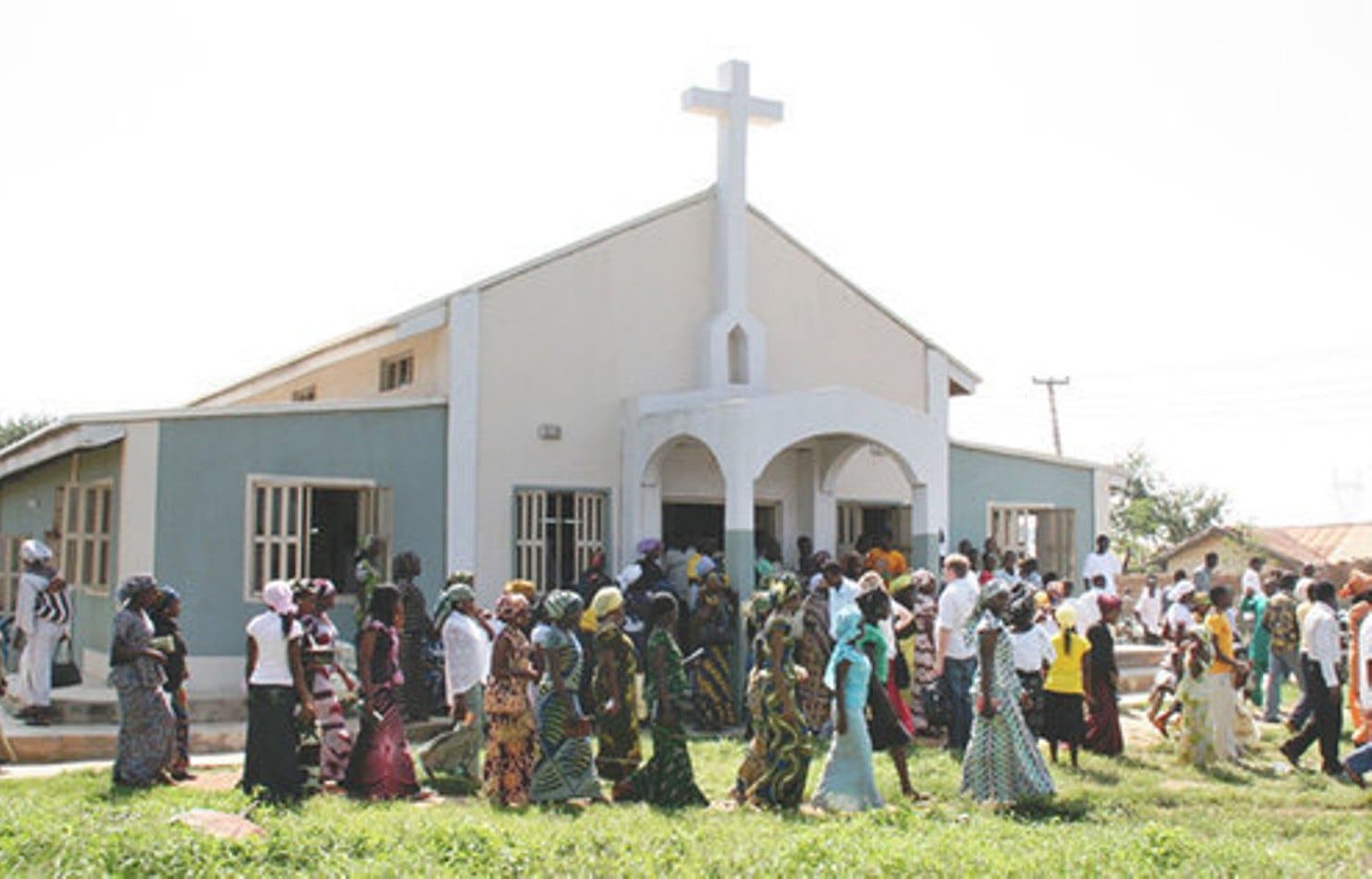By Tope Akinnola
Let’s start by looking briefly at the civilisational problem of which I have said is one of the country’s core problems. In 2017, at a G-20 Summit, the French President Emmanuel Macron, in answer to a question asked by a journalist from Ivory Coast responded and said that ”the problems Africa faces today… are civilisational” in nature.
Vast numbers of people came out of the wood-works, particularly Africans, attacked him, claiming that his comments were racist in nature. But truth be told, he was right in absolutely significant ways. I couldn’t agree with him more, more so that I have held that position stoutly before he mentioned it. What he said applies to Nigeria and to a more than ample number of African countries today.
Mr. Macron, in further elucidating or explaining his position stated, “What are the problems? Failed states, complex democratic transitions and extremely difficult demographic transitions.” There you are!
Failed states (manifesting in the systemic collapse of social infrastructure; lack of highly developed, stable and strong institutions; zero advances in technology; continual epileptic and dysfunctional electricity supply; zero pipe borne water supply into people’s homes; lack of adequate, planned, methodical and organised record keeping regulated system; lack of advanced cities and towns; lack of food security and absence of sufficient staple food supply as well as lack of availability of balanced diet for the majority of the population; and so on). Isn’t that true?
Complex democratic transitions (with all its rigging, open and institutionalised thuggery; active vote buying — sometimes with a bowl of rice or two thousand naira at the polling units — methodical voter intimidation and suppression; staging of fire outbreaks to burn election materials to aid the manipulation of the election process; sit-tight mentality; using the power of incumbency to crush opposition and manipulate election results; and so on and so forth). Isn’t that true?
Extremely difficult demographic transitions (that hamper proper planning and development — for instance, with already impoverished couples giving birth to 9 or 10 or more children that they can never adequately cater for, or give better lives and secured futures to, etc.). Isn’t that true?
As I have earlier pointed out, aside the ”civilisational” problem, there’s also a critical cultural problem which manifests in a myriad of forms. A most conspicuous one is the culture that discourages ”asking questions” and that frowns at challenging the status quo; one that discourages curiosity and prying, which invariably makes rulers tending to be oppressive, not wanting to be challenged and accountable. This has got nothing to do with religion. It’s a cultural and value system problem (which religion has only accentuated).
The cultural problem in Nigeria (and by extension many other places in Africa) — aside from the aforementioned includes the culture of lack of value for human life; and the culture of impunity (one that demonstrates and encourages exemption or ensures freedom and security from punishment or from facing consequences of a criminal action or behaviour, etc.).
Then, there is the injurious culture of tacit support for violence as long as the perpetrated violence promotes vested parochial, political and ethnic interests.
In addition, we’ve got the culture of institutional discrimination that antagonises merit and excellence but promotes mediocrity and preferential treatment based on ethnicity; coupled with this is the nasty culture of laziness in parts of the segment of the population that hold on to the false belief that the wealth and natural resources of the country belong to them.
There’s also the culture of waste, which manifests in extravagant consumption or ineffectual use and squandering of money and resources uselessly, both at the state and individual levels; this culture of waste also manifests in spending time idly — there’s no advanced or developed society that wastes time, or that does not have the culture of putting premium value on time management.
In addition, there is the adverse culture of predator leadership, in which leadership continually attacks public treasury with the purpose of plundering it for personal gain, with no consequences whatsoever. This includes but not limited to the shameful culture of using public funds by public political officials to conduct elections with no consequences whatsoever. This abnormal and senseless culture has been so normalised such that it is done so openly!
No amount of foreign aid pumped into Nigeria (or Africa) will ever solve the country’s perennial problems because the monies will still be plundered. That’s one of the reasons that I’m an ardent opponent of foreign aid.
This culture of predator leadership is also inflamed by a culture of seeking to grab and cling to power to dominate others for the sake of it, by a privileged minority — whose main purpose in leadership is nothing but to hold to power and plunder the country’s resources — and not to make the country technologically and industrially advanced.
Have you ever wondered why the country called Nigeria hasn’t been able to successfully run a fully functional oil refinery for donkey’s years? It’s not a religious problem. It’s a civilisational and cultural problem. Qatar, which we already know is a very religious, predominantly Muslim country, has a state-owned petroleum company called Qatar Petroleum, founded in 1974. Up till today, the company operates all of the country’s oil and gas activities, including exploration, production, refining, transport, and storage. Its operations are also directly linked with state planning agencies, policy making bodies, and regulatory authorities. With its subsidiaries such as Qatargas, Gulf International Services, etc., it has never disappointed the country. But of course, you know the case is different for Nigeria. And churches are not responsible for that.
Furthermore, note that Nigeria will remain underdeveloped with majority of its population languishing in poverty and with its blossoming potentials and talents forever constrained — and castrated — without deliberate and calculated efforts to prioritise and execute the most dramatic and radical efforts in HUMAN CAPITAL DEVELOPMENT and capacity building of its citizenry. And don’t tell me that it is the role of churches and religious centres to enact and vigorously pursue aggressive capacity building and human capital development programmes for the country’s citizenry!
China, realistically assessing its future plans for global relevance, aggressively carried out a deliberate and calculated plan, beginning about 40 to 45 years ago, by investing billions into granting scholarships and sending hundreds of thousands of its nation’s youths — devoid of bias or parochial interests — to the best universities in Europe and America, to study technology-based and relevant scientific disciplines so as to develop the human capital and build the capacity necessary to replicate and develop new technology inside China.
Japan also developed its own technology sector too after the Second World War ended in 1945 by sponsoring its youths with a calculated, targeted, and massively aggressive vigour, to go study abroad after which they would come back to accomplish some of the most ingenious works of reverse engineering in history, turning the nation into a high tech economy.
But what has the Nigerian government done in this regard? Nothing. Zero. This is not a problem of religion, it’s a civilisational and cultural problem.
Nigeria’s political and military leaders (that ruled at different times since Independence up till now) prefer to plunder and embezzle public funds and pursue white elephant projects than to invest heavily in HUMAN CAPITAL DEVELOPMENT. Because they know that they could do it with impunity and go away with it with no consequences.
Go to Germany, which is a technologically advanced country (where the political party in power today is a Christian party), or the United Kingdom (where the Queen is the head of the Church of England), or Qatar (a predominantly Muslim country), or China (where their main religions are Confucianism, Taoism, and Buddhism), or Japan (where their main religions are Shintoism and Buddhism), to corruptly enrich yourself by embezzling public funds, and you will be shocked at the very harsh and merciless consequences that would be meted out on you. Do you know why? It is because the culture of impunity that is prevalent in Nigeria is not prevalent in those climes.
And so, I would repeat myself again for the umpteenth time that: the problem in Nigeria is not primarily religion but a civilisational and cultural problem — one that rests on the foundation of impunity itself.
Until we start squaring up to that and facing it, we will keep going back and forth and moving round in circles. Let’s look at those who mindlessly murder people in the name of religion and those who sponsor these murderers in Nigeria — why do they continue? It is because they know they could do it without consequences. These days we hear that these murderers can even get rewarded with foreign scholarships — thereby reinforcing the country’s culture of impunity! I’m talking of people who murder innocent people in the name of ”western education is evil”, and who are now going to be rewarded with scholarships to study in western countries to acquire the same ”western education” for which they’ve murdered families, children, women and men!
That my friend, is a civilisational and cultural problem of impunity, being reinforced, and merely hiding behind religion.
Go to Saudi Arabia and try to murder people in the name of religion like the Riyadh-born Osama Bin Laden did and ”you would see what will happen to you” like it is popularly said in Nigeria. The Saudi Arabian government hunted Osama Bin Laden down until he escaped from the country which later stripped him of his Saudi Arabian citizenship. He was banished from Saudi Arabia in 1992, before shifting his base to Sudan.
And by the way, let me say this before it skips my mind: Are you aware that the quality of education began to decay and got compromised in Nigeria after the government took over schools that were singularly founded and properly funded by religious organisations? They were equipped with robust libraries and functioning science laboratories and top-of-the-class teachers. But after the Nigerian government took over, we all know what happened thereafter! How dare you say churches and religious centres are the primary reason for the collapse of the Nigerian state into backwardness!
 The billions of monies earmarked into the Ajaokuta Steel Mill, designed to power Nigeria’s industrial revolution and take off had been embezzled silly over the decades, with every fresh government also allocating fresh humongous monies in billions to the Ajaokuta still birth project and the monies kept sinking into gigantic holes of waste and corruption. Is it religion that caused that? No. And we all know that no nation on earth can ever achieve industrial revolution and large scale industrial production without steel. Yet some people, in their own thinking, want to blame churches and religious centres for the backwardness in the country.
The billions of monies earmarked into the Ajaokuta Steel Mill, designed to power Nigeria’s industrial revolution and take off had been embezzled silly over the decades, with every fresh government also allocating fresh humongous monies in billions to the Ajaokuta still birth project and the monies kept sinking into gigantic holes of waste and corruption. Is it religion that caused that? No. And we all know that no nation on earth can ever achieve industrial revolution and large scale industrial production without steel. Yet some people, in their own thinking, want to blame churches and religious centres for the backwardness in the country.
They even say that churches should be building industries. Meanwhile, the hostile environment created by government’s adverse policies or lack of the right policies once drove industrial undertakings like Michelin, Dunlop, Unilever, etc., to move their critical base of operations outside Nigeria.
In a move to glorify Japan as ‘a country without religion’ — which is not true — but a country making progress industrially and technologically — which is true — the broadcast on the internet TV of which I earlier indicated at the beginning of this discourse, stated that 60 percent of the vehicles on African roads are Japanese-made (I didn’t fact check this). Let’s assume it is true for a moment, and also that it applies to Nigeria as well, but listen to me, you wouldn’t know the entire story until you read and understand Japan’s manufacturing and industrial history in car manufacturing.
The Japanese government deliberately, and in a calculated manner, inspired, encouraged, supported, and was intentional in helping to grow Japanese brand of cars by not only giving patronage to the home grown brands of private investors inside Japan, but by also encouraging the rest of the country to do so.
Then, policies that would help Toyota, Honda, Nissan, etc., were deliberately created to boost production and expansion of these Japanese brands into the global market because Japan saw them firstly, as global ambassadors for Japan; and secondly, as great sources of tax revenue for their nation’s economy.
Like Japan, in South Korea — don’t forget that South Korea has some of the biggest churches in the world — the government deliberately pushed and strategically helped their own auto makers such as Hyundai, Kia, and Daewoo to become global brands too.
Now, what has the Nigerian government (both at the federal and state levels) done intentionally and by a calculated, deliberate plan, about helping a car manufacturer like Innoson Vehicles to become a continental or global brand? Virtually nothing, in the real sense — except perhaps rhetorics.
Even Nigerian legislators made a loud statement by their refusal to give patronage to Innoson, earlier this year, in the middle of the Coronavirus health pandemic, rather preferring foreign Japanese brands by flinging hundreds of millions of dollars into the pockets of Japanese automakers instead of Nigeria’s automaker!
Is it Japan that will develop Nigerian automobile brands? Nay.
Is it churches and religious centres that will develop the car manufacturing sector in Nigeria too? Nay.
There’s no single nation on earth where they would have their own automaker(s) and where they wouldn’t deliberately, strategically, aggressively promote and ‘scatter’ their streets with their own automobile brand to showcase it to the world.
There it is again as we wind down: religion is not the primary problem of Nigeria’s generational lack of progress and stagnation in terms of global development index; it is a civilisational and cultural problem that Nigeria primarily has. In the case of the last example that we just discussed above, it is a problem of the entrenched culture of consumption and preference of foreign goods. Until the country breaks free totally also from that culture, I can assure you that in 40 years time, someone would read this article of mine, and it would still resonate so well such that it would be considered relevant and contemporary.
God forbid!
Tope Akinnola writes in from Lagos
























